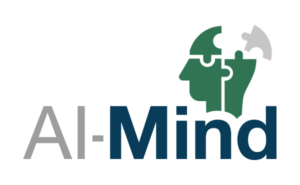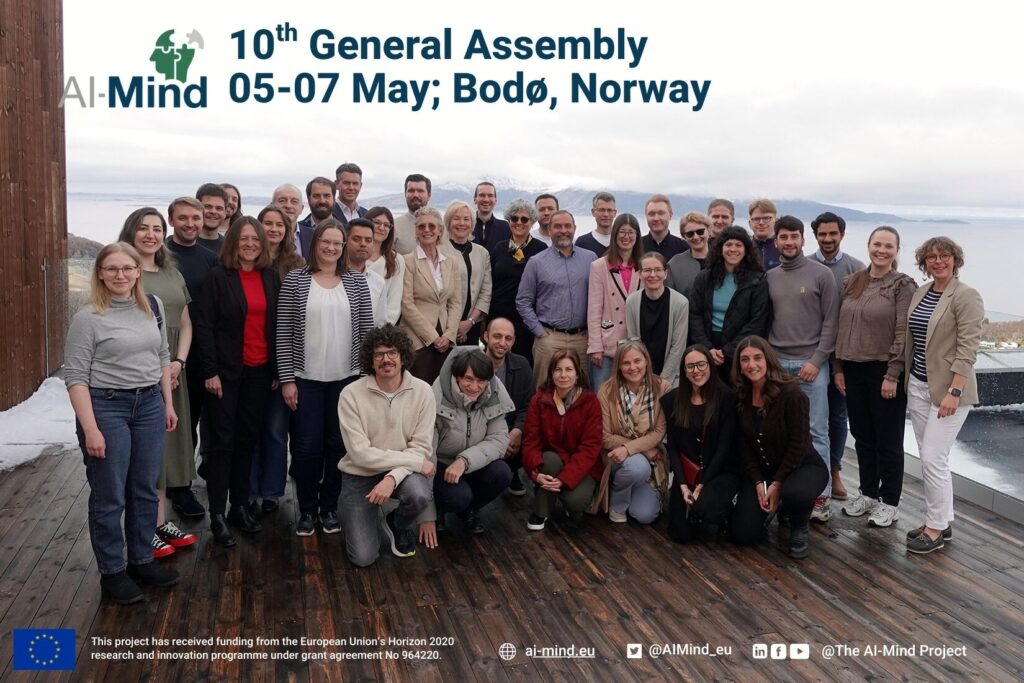Innovation, Collaboration, and Open Science: Highlights from AI-Mind's 10th General Assembly
The AI-Mind consortium concluded its 10th General Assembly in the scenic city of Bodø, Norway, bringing together a multidisciplinary team of over 60 experts both onsite and online. The three-day event (05-07 May) featured collaborative workshops, insightful public lectures, and hands-on sessions, all aimed at advancing AI-powered solutions for the early detection and prevention of dementia. This year’s assembly underscored the critical role of interdisciplinary collaboration, uniting neuroscientists, clinicians, engineers, and data scientists to push the boundaries of brain health innovation.
Scientific Writing Workshop: Setting the Stage for Collaboration
Ahead of the official #AIMindGA, over 15 consortium members participated in a Scientific Writing Workshop held on Saturday and Sunday. A session on Open Science, including open access from Joanna Plesniak (accelopment), opened the stage for the seminars’ discussions on ongoing publication concepts. This early start fostered momentum and alignment among the partners before the main event, which focused on disseminating research results.
Day 1: Official Opening and Collaborative Workshops
The event officially opened on Monday, 5 May 2025, with welcoming remarks from Ira Haraldsen (OUS), setting the stage for a series of insightful sessions. The Scientific Advisory Board (SAB), represented by Ole Petter Ottersen, Angela Lanna, Andreas Keller, and Mathias Toft, outlined critical priorities for the assembly, followed by a technical overview of the project by Ainar Drews (UiO) and a session on Open Science, led by Joanna Plesniak and Ole Petter Ottersen, emphasising transparency and accessibility in research.
The morning continued with a hands-on group workshop for WP1 on personalised patient report led by the TLU team. This was followed by a dynamic panel discussion in the afternoon for WP2 (Data Management & Feature Extraction), hosted by HUS and UCM, which focused on EEG data processing and upcoming publication initiatives. The day concluded with updates on WP4 (Data Visualisation Platform) from Ira Haraldsen.
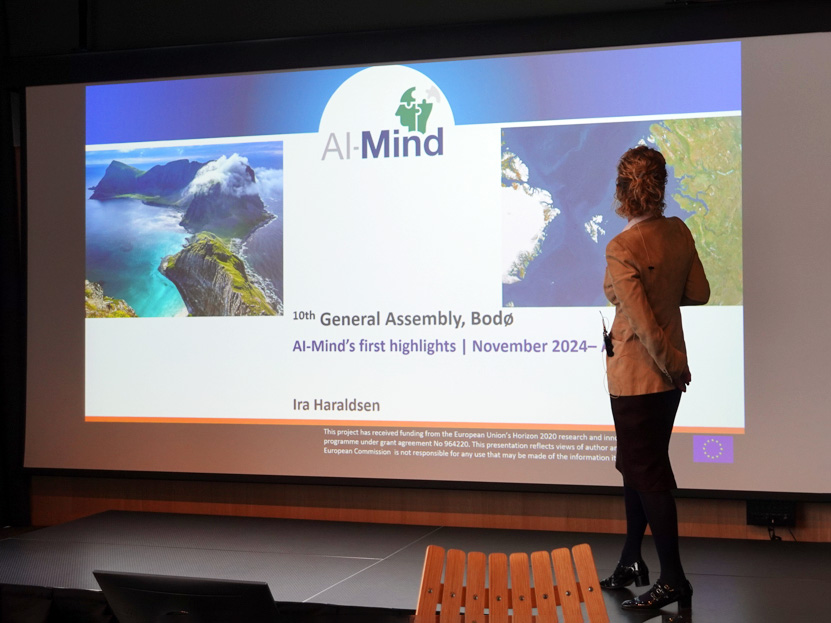
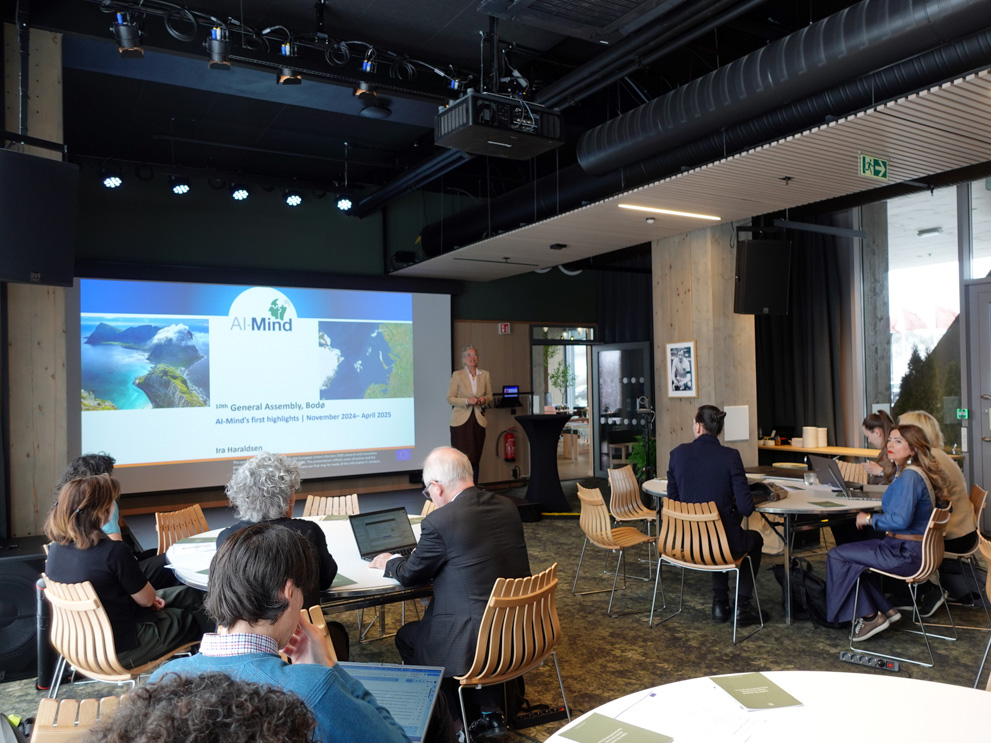
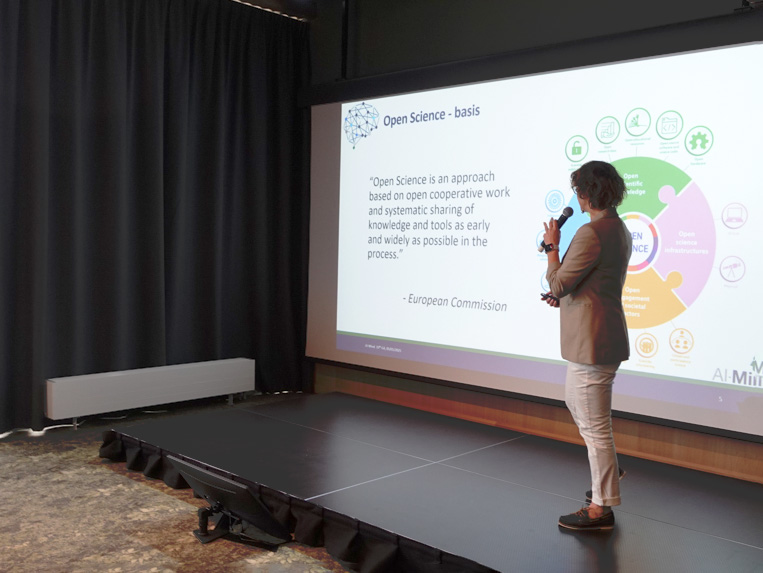
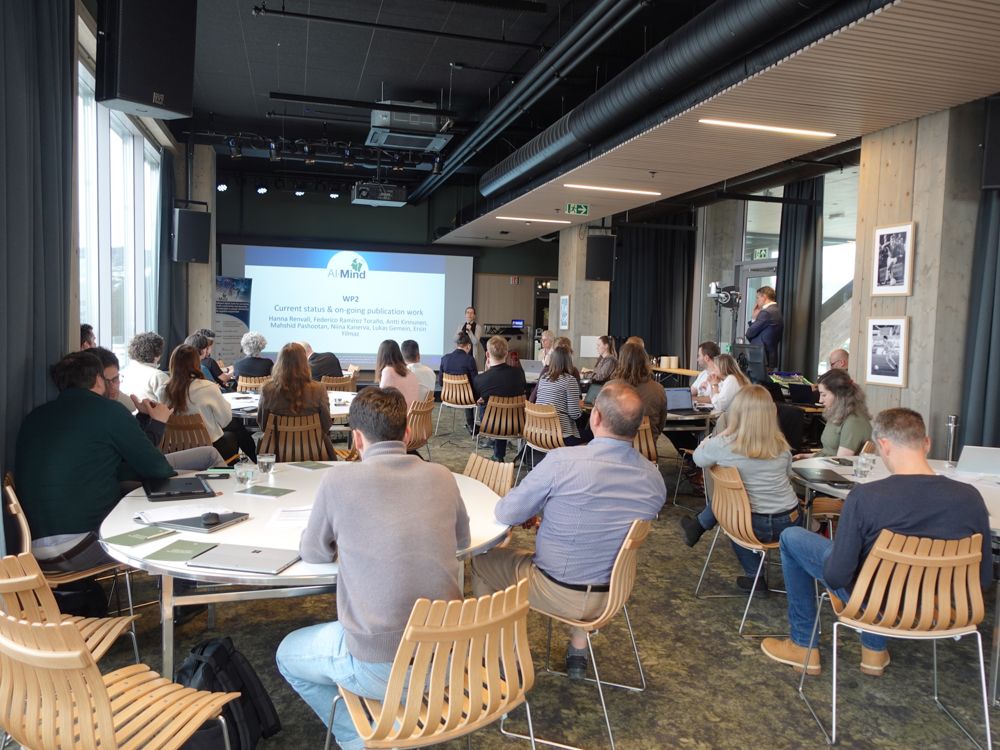
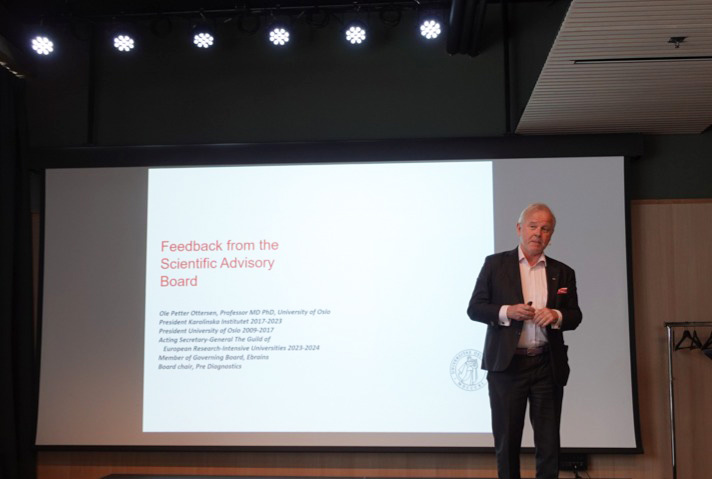
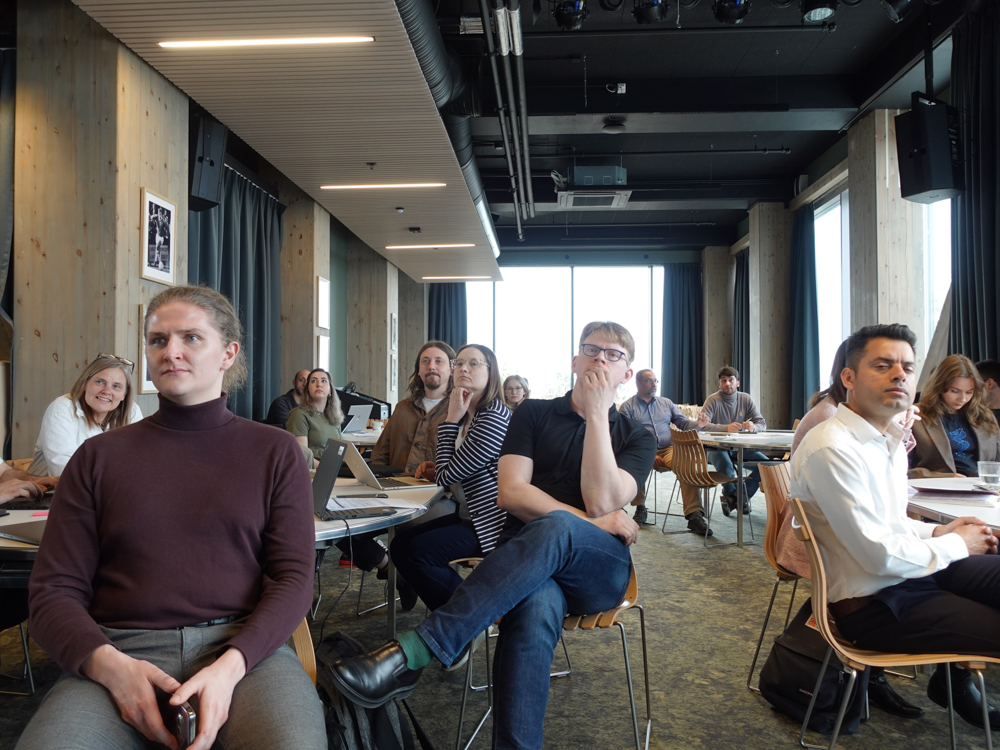
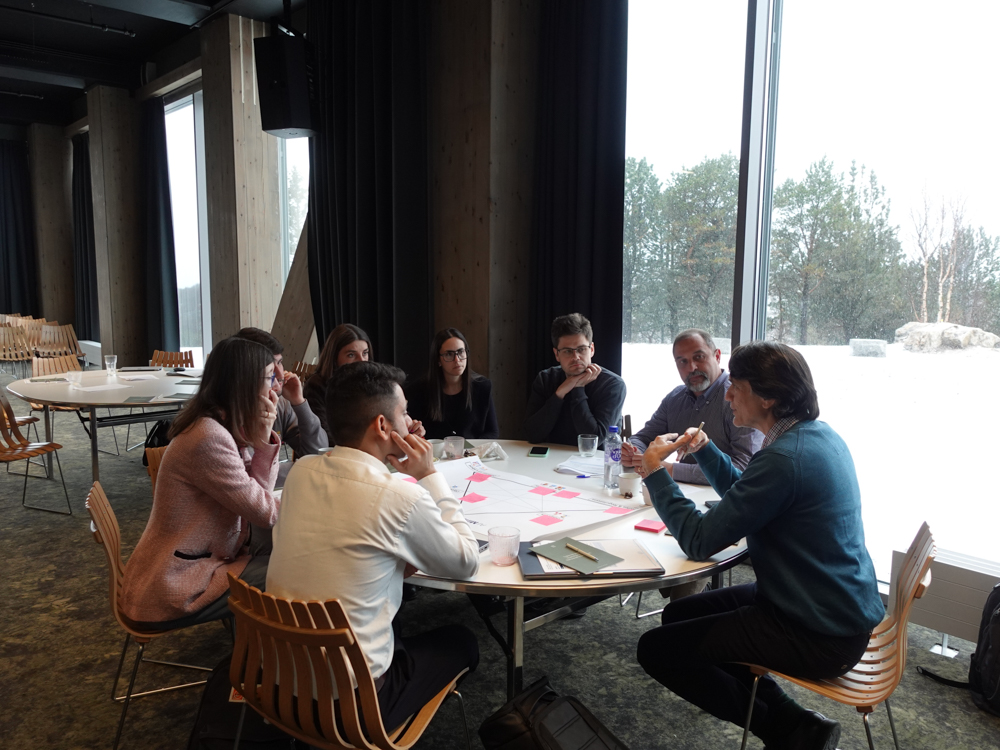
Day 2: Public Engagement and Collaborative Discussions
Day 2 commenced with a Public Breakfast Lecture opened by Odd Emil Ingebrigtsen, the Mayor of Bodø. General practitioners from the Bodø region joined the event to gain insights into the project and the ongoing research addressing the dementia challenge. Following this, Ira Haraldsen (OUS) presented on the critical journey of translating research insights into clinical reality. The session was enriched by Fernando Maestú (UCM), who delivered a guest lecture on Functional Brain Networks at Different Stages of Alzheimer’s Disease, comparing current biomarkers with lifestyle impacts.
Later, Anis Yazidi (OsloMet) moderated a collaborative panel for WP3 (AI Modelling), discussing the status of machine learning and deep learning approaches within the project. The afternoon session focused on WP5 (Clinical Implementation), where Camillo Marra (USCS) and Christoffer Hatlestad-Hall (OUS) led discussions on action plans and publication initiatives with representatives from different clinical sites.
The day wrapped up with an engaging update on WP7 (Dissemination and Communication) by Joanna Plesniak (accelCH), covering exploitation strategies, year-5 activities, and updates from an Alzheimer Europe special supplement. Participants then enjoyed a networking event exploring the local history of Norway, fostering connections and cultural appreciation.
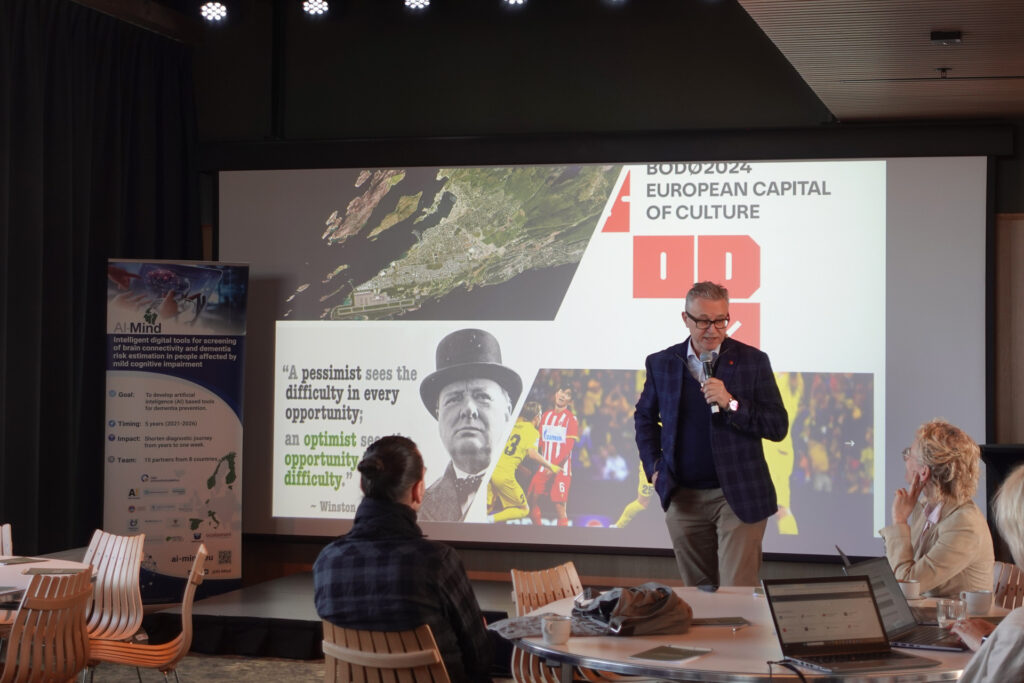
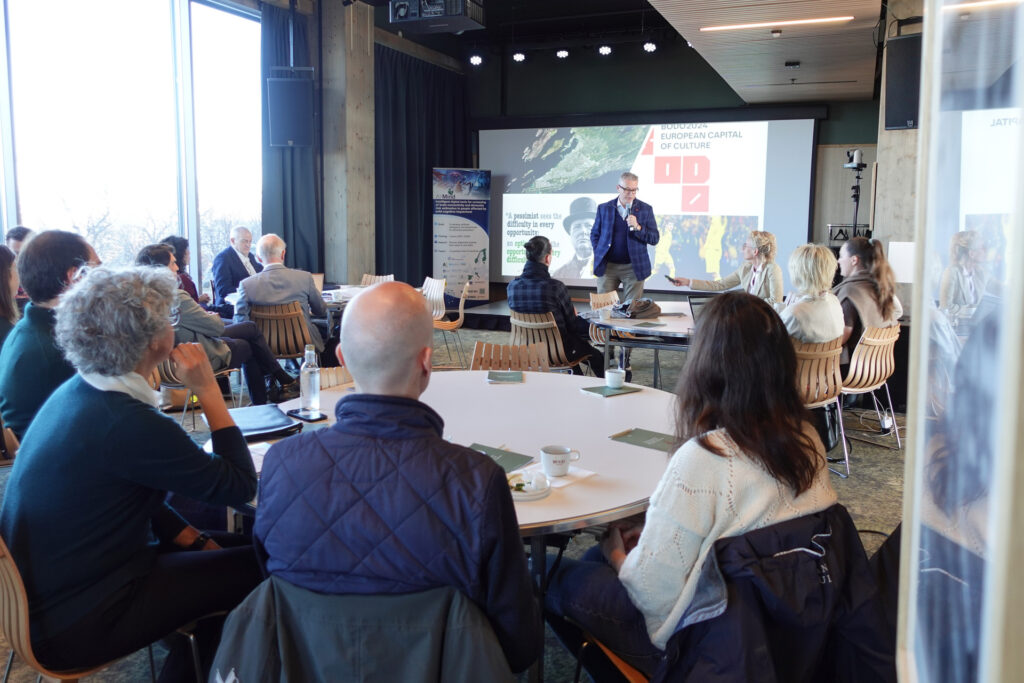
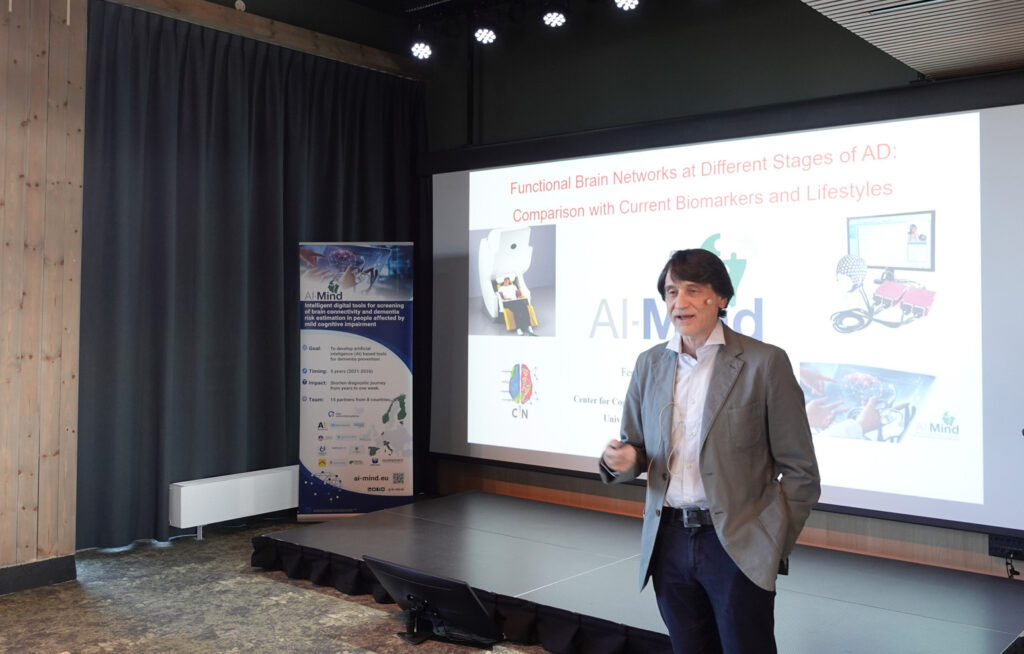
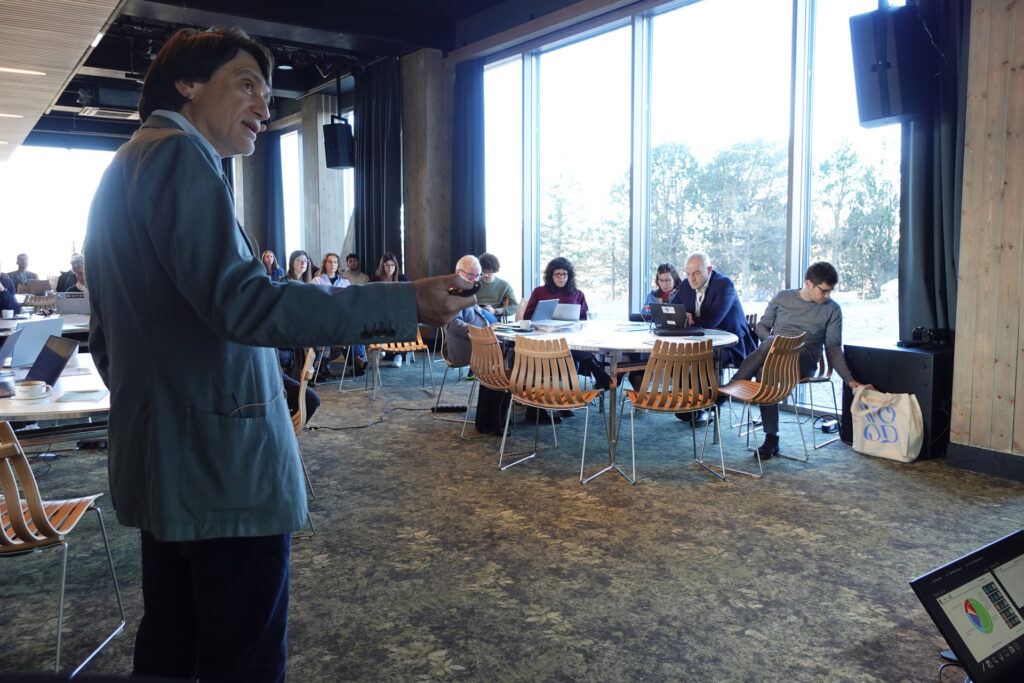
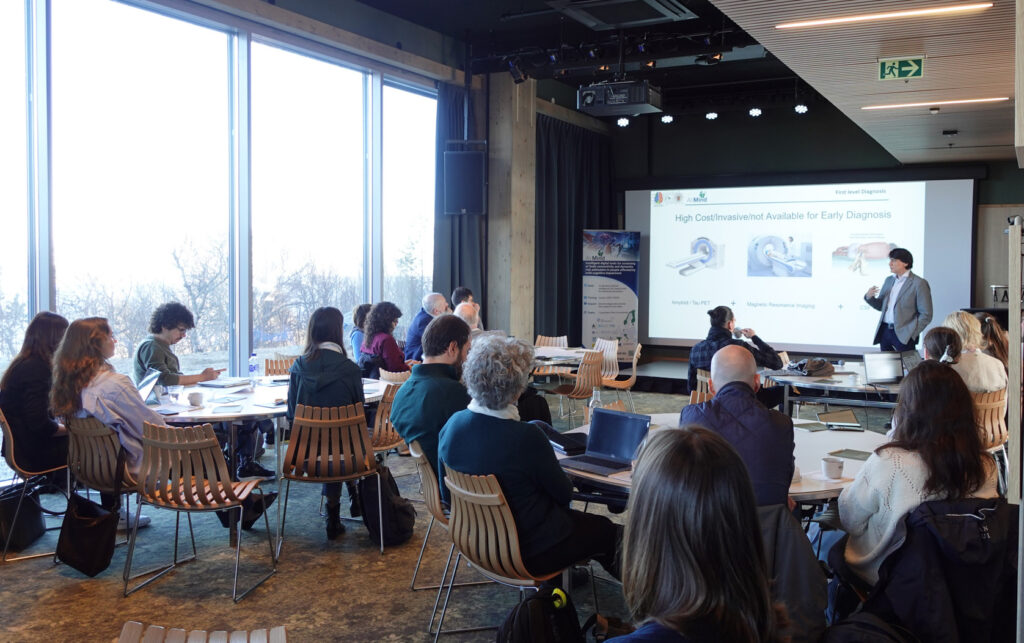
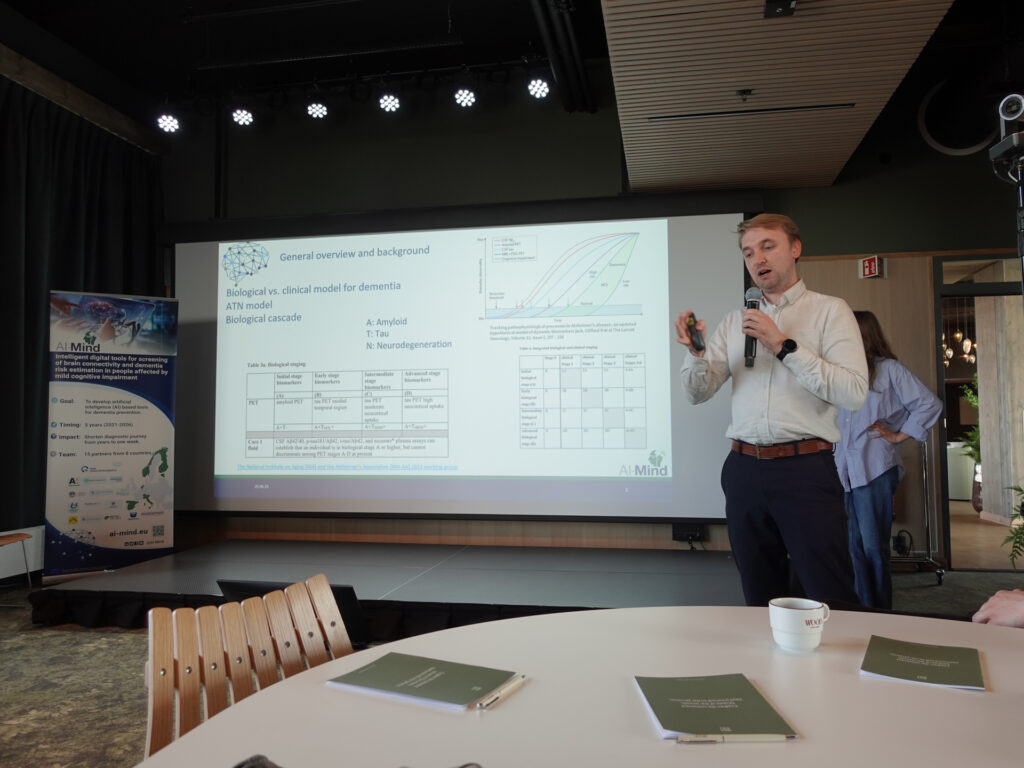
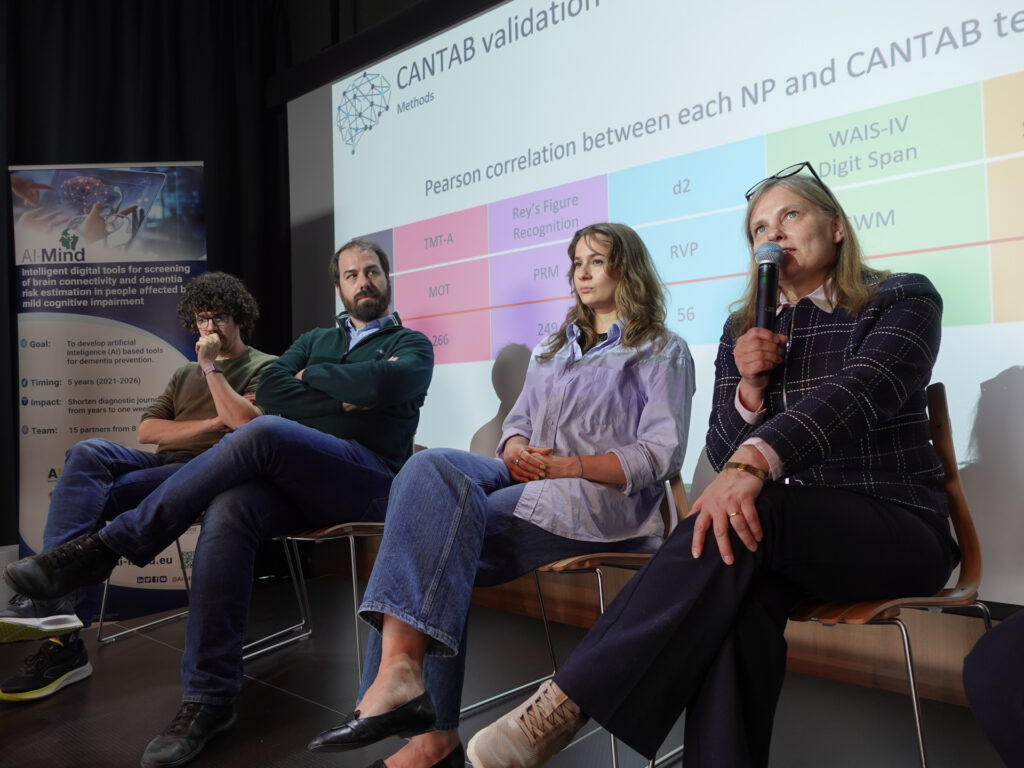
Day 3: Policy and Future Directions
The final day began with WP6 (Health Technology Assessment), led by Rossella Di Bidino (USCS), focusing on a policy brief that will be developed within the project to showcase the societal, economic, and healthcare benefits of AI-Mind technology. This was followed by parallel meetings that included the SAB members & Coordinator, alongside open discussions led by Christoffer Hatlestad-Hall (OUS).
Feedback from the SAB emphasised priorities for the remaining months of the project, setting a clear path toward impactful conclusions and sustainable integration of AI-Mind’s innovations into wider clinical workflows.
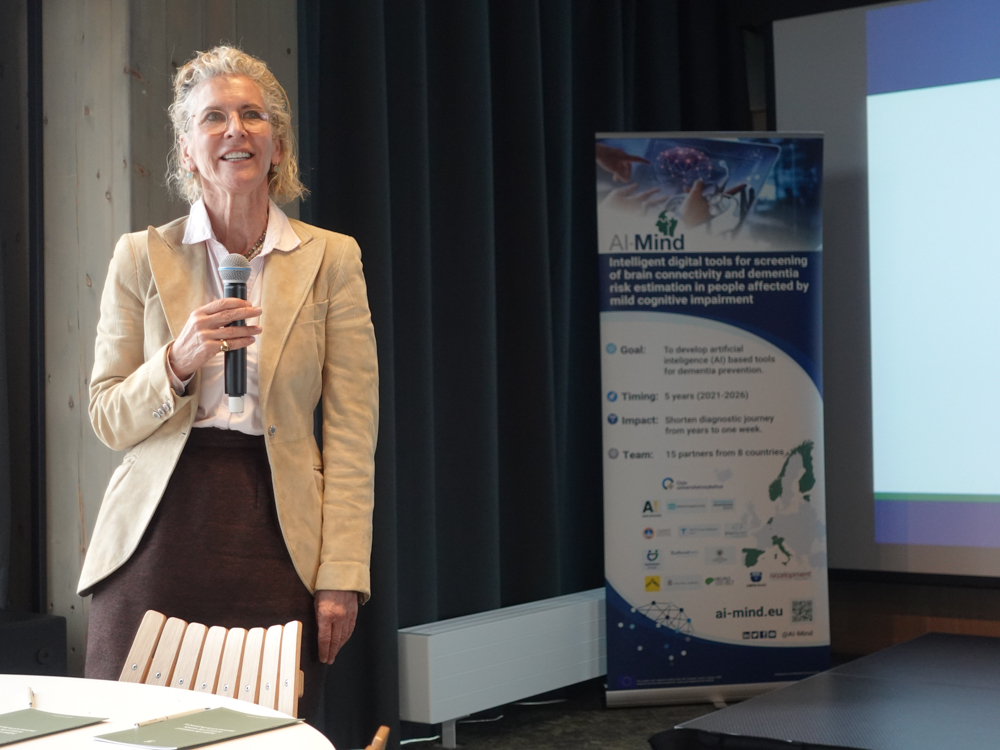
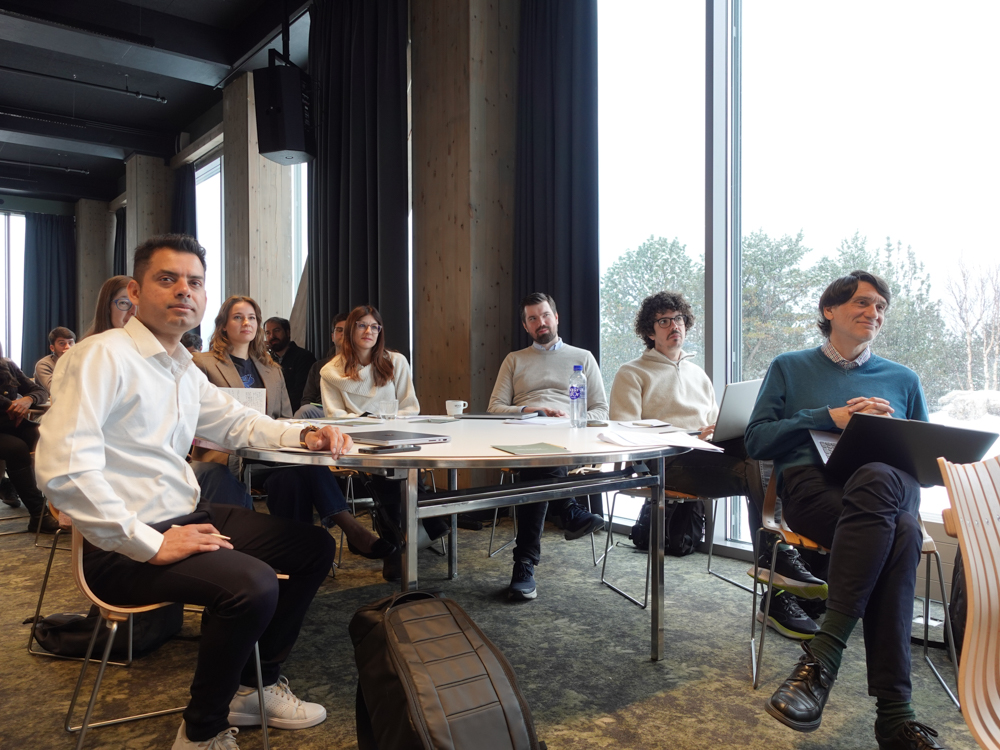
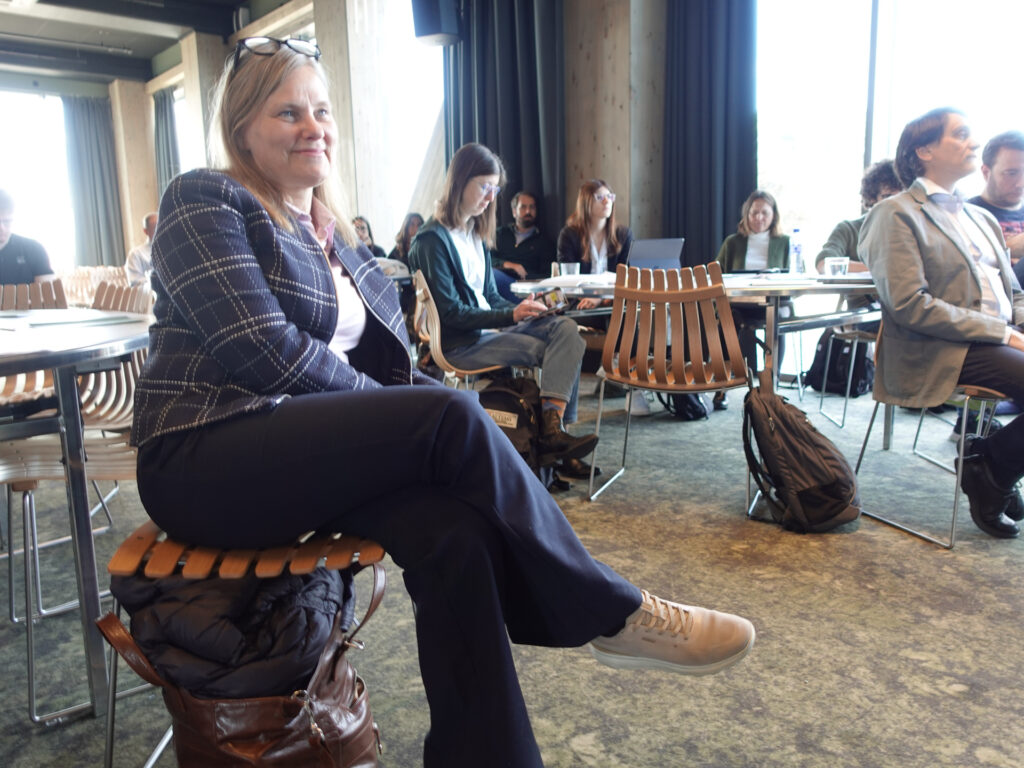
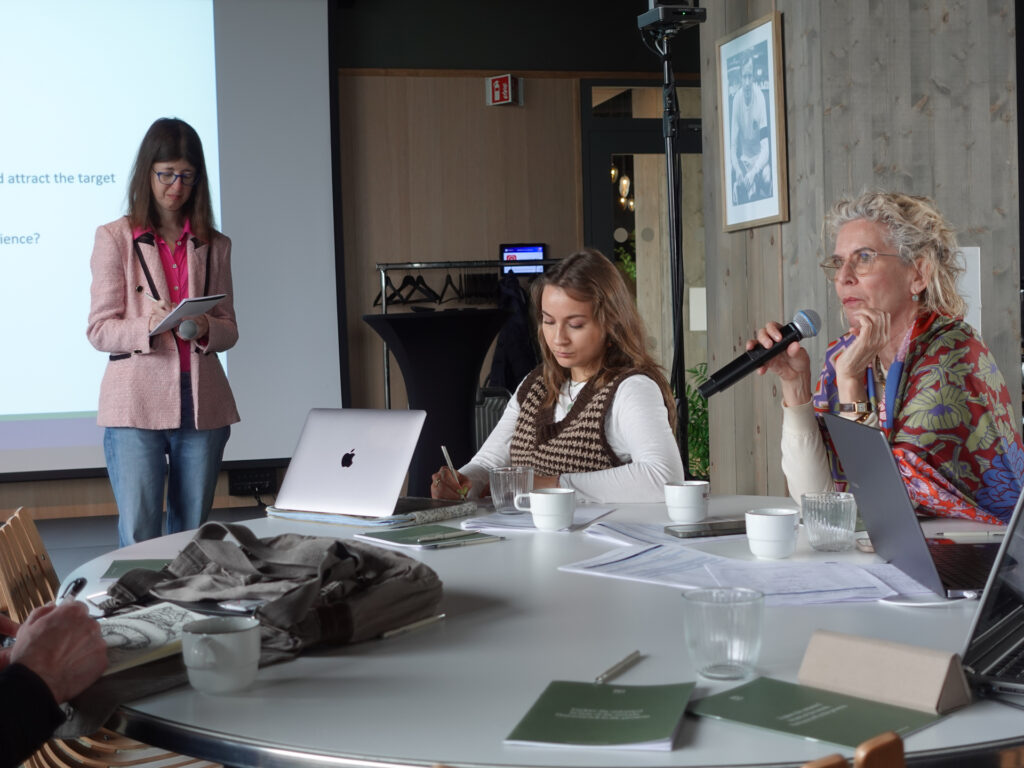
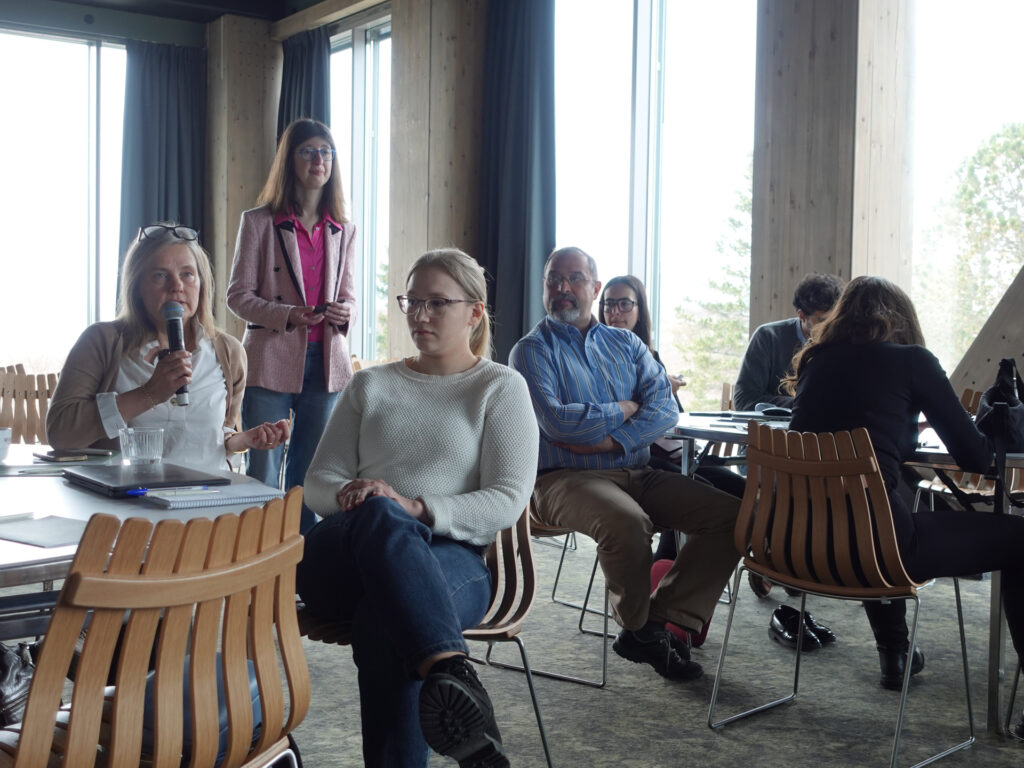
Hands-On Workshop: Proposal Writing for Future Projects
After the official GA concluded, around 20 consortium members participated in a hands-on proposal writing workshop led by Jeanette Müller and Joanna Plesniak (accelCH). This session included a presentation on the Dementia Research Landscape, benchmarking AI-Mind within the field, and group discussions on how key project results could drive future research applications.
The 10th General Assembly of AI-Mind showcased its truly interdisciplinary nature, bringing together experts from diverse fields. This unique blend of perspectives enabled richer discussions and more innovative approaches to solving challenges in neurodegenerative disease detection and intervention. As AI-Mind advances into its final phase, the outcomes and collaborations fostered at this General Assembly reflect the commitment of its partners to revolutionise early intervention strategies for dementia through cutting-edge AI technology.
